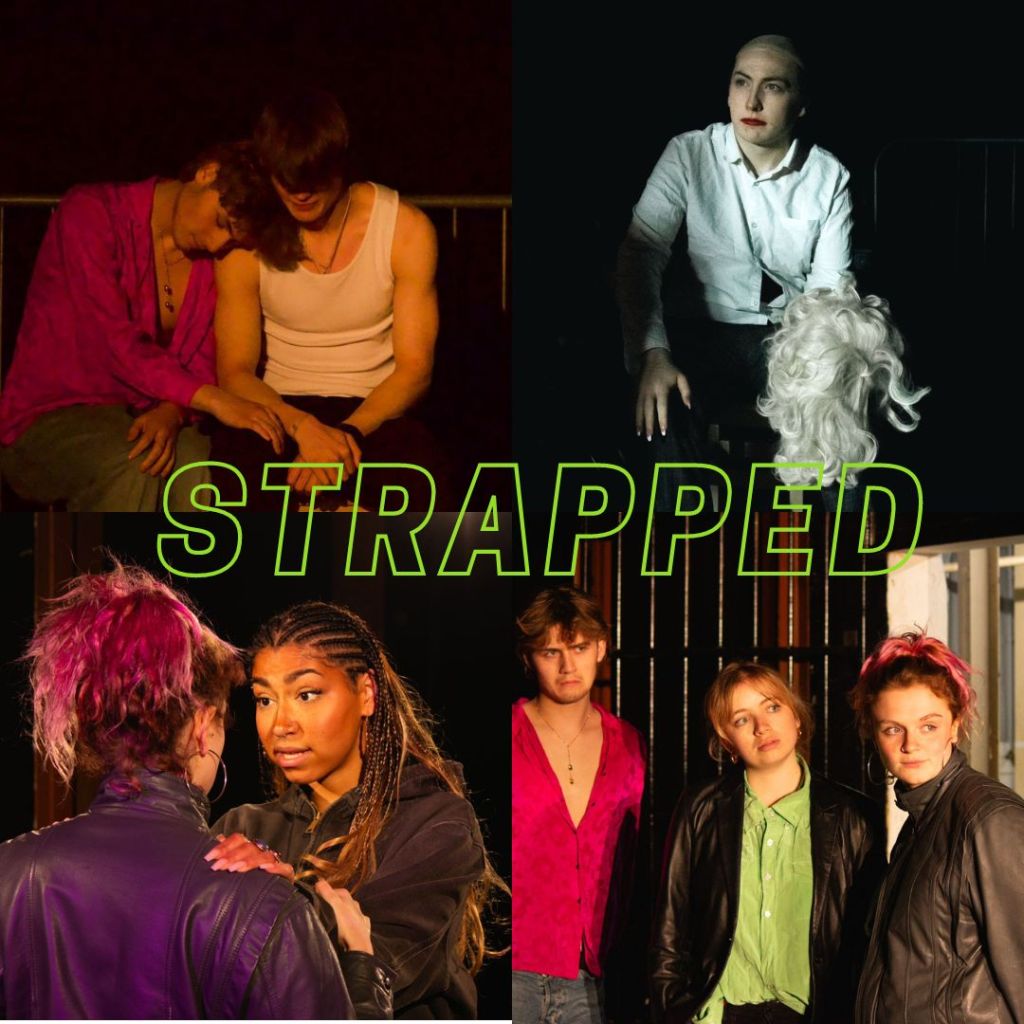TWSS’ Ruby Smith reviews The Toxic Shock Theatre Company’s new play – examining its exploration into the complicated themes of class, sexuality, family and violence.
A gay club and a council estate, a crime drama and a drag show; throughout Strapped, the Toxic Shock Theatre Company chucks us between them all. Hitting us with themes of knife violence, homophobia and hate crimes, the play delves into the often ignored intersectionalities that pervade throughout sexuality and class. Set to a soundtrack of modern pop and classic radio tunes, the play seamlessly switches from laughter to scream-fights in a matter of seconds.
The whole story is haunted by the recent death of the Cassidy family’s cousin, a gay man from the Nightingale estate. The murder scars both communities. But conflict quickly arises between the drag queens, who view the murder as a hate crime, and the Cassidy family, who see it as a violent situation that outsiders of the estate fail to understand. Each community forms a stubborn faction. However, as the play unravels, shared sympathies are revealed. But things don’t end there, and violence is constantly just a scene away.
The two drag queen’s Yeast Splendour / Toni (Matthew Hill) and Henry S. Clark (Louis Thresher) stand out not only as great characters, but also excellent drag-performers. Their drag shows are completely immersive, talking to the audience as if we are regulars at ‘The Apple-Bob’. Toni’s character is a seasoned performer who feels the heavy weight of anger toward a homophobic society and police force. In a tense moment when the two queens argue over police brutality toward the LGBTQ+ community, the complicated matters of generational difference, class and privilege are questioned.
Class remains a key theme explored throughout the play. With half the characters coming from the Nightingale Estate, many of them face prejudice and derogatory comments. None of the characters’ slates remain clean; with all of them discriminating or negatively commenting on either class or sexuality, this becomes part of the reason the play is so memorable. There is no clear side to pick. All the characters have justified reasons for their actions. The play seems to be encouraging us to go beyond surface level, to think about motive and reason: why do the characters think the way they do?
A compelling performance from Louisa Marshall as Eliza Cassidy captures the life of a woman confined to the estate. Controlled by drugs and paranoia, her erratic nature makes for some of the most interesting scenes in the play. Her brother Michael Cassidy (played by Philip Bayntun) shows the life of a reformed criminal, closeted and surrounded by a life of crime. His hilarious comments are contrasted by his search for connection through Henry’s prostitution, showing a struggle for identity in a place so socially constricted.
Most of the links between the drag world and the estate come from leading-lady Zoe Cassidy, performed by Ruby Skilton-Robinson. Throughout the play, we watch her search for identity while battling feelings of grief and fighting to keep her dysfunctional family in one piece. Violence becomes part of her everyday life and anger is her main way of communicating. As we learn more about her, we see her vulnerability hidden under a layer of responsibility for her community. Her character explores how much of a person can be hidden as a means of survival.

Zoe’s relationship with Bianca, played by Lily Robinson, helps capture this complicated exploration. Their dynamic as a whole shifts many times throughout the play, with moments of affection tied up with emotional manipulation and sometimes violence. This complicated dynamic is representative of the detail in characterisation that goes into the characters of Strapped.
The combination of skill in writing, production, acting, and design work creates a play that is not only enjoyable but makes you question your preconceptions. Lip-synicing drag performances and violent fight scenes, accompanied by mystifying music and lighting, help you get lost in their world. But it’s truly the moments between character and character where morals, loyalties and identity are explored that make the play such a brilliant watch.
